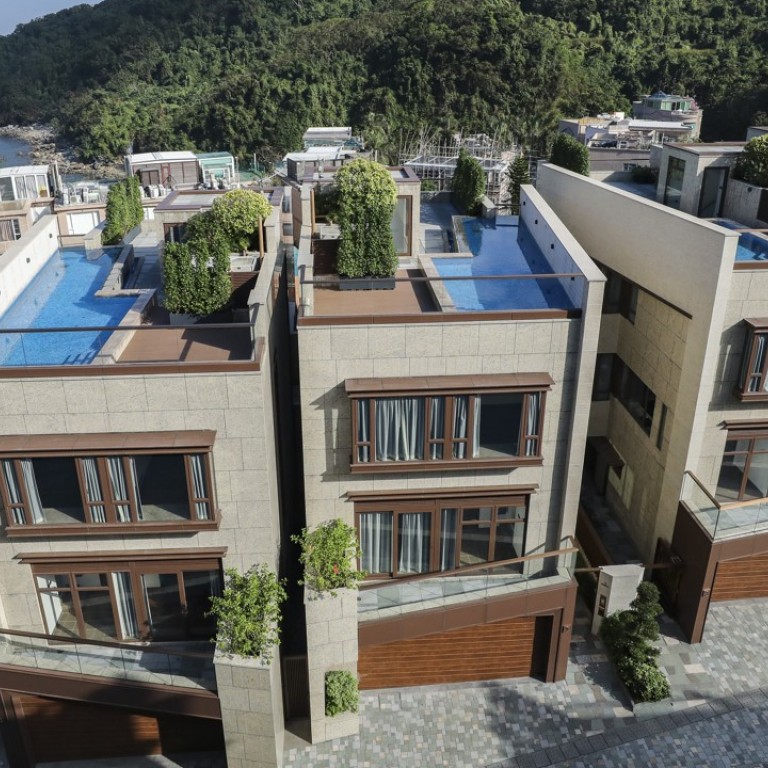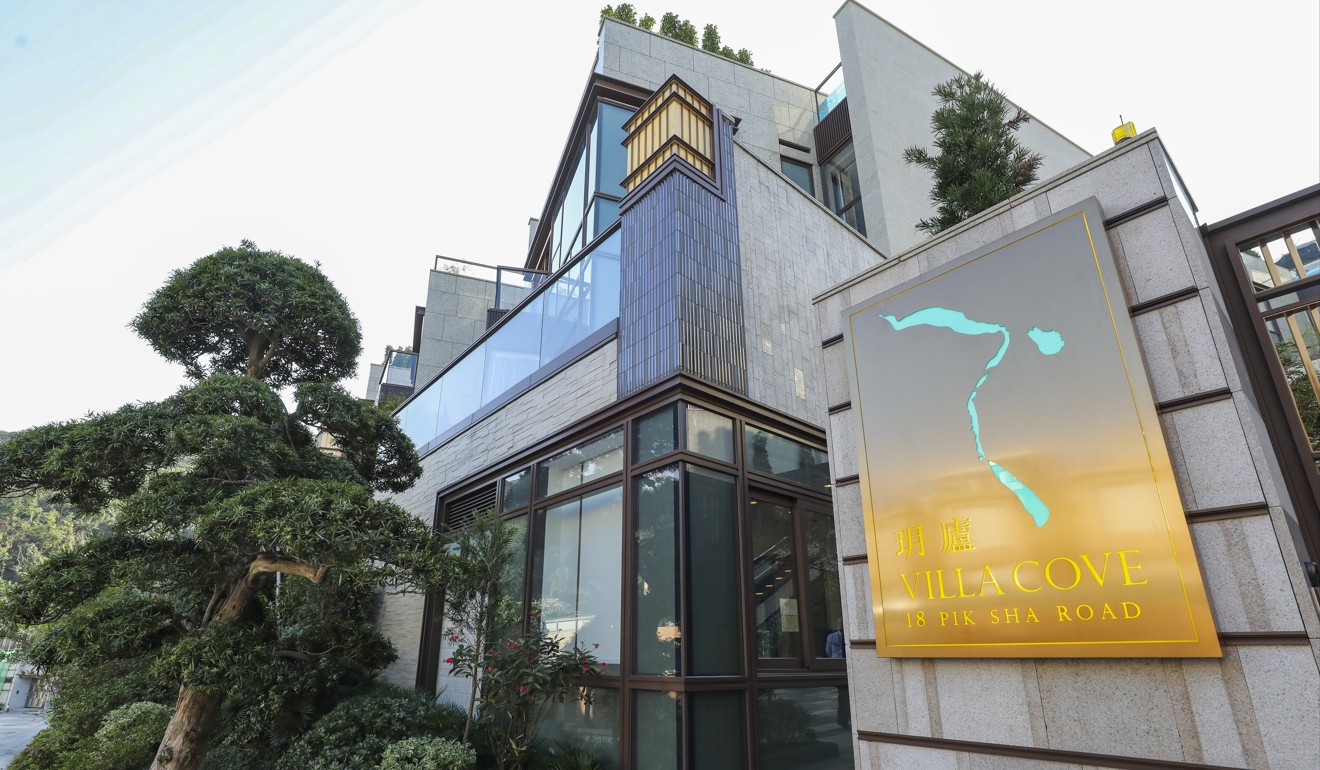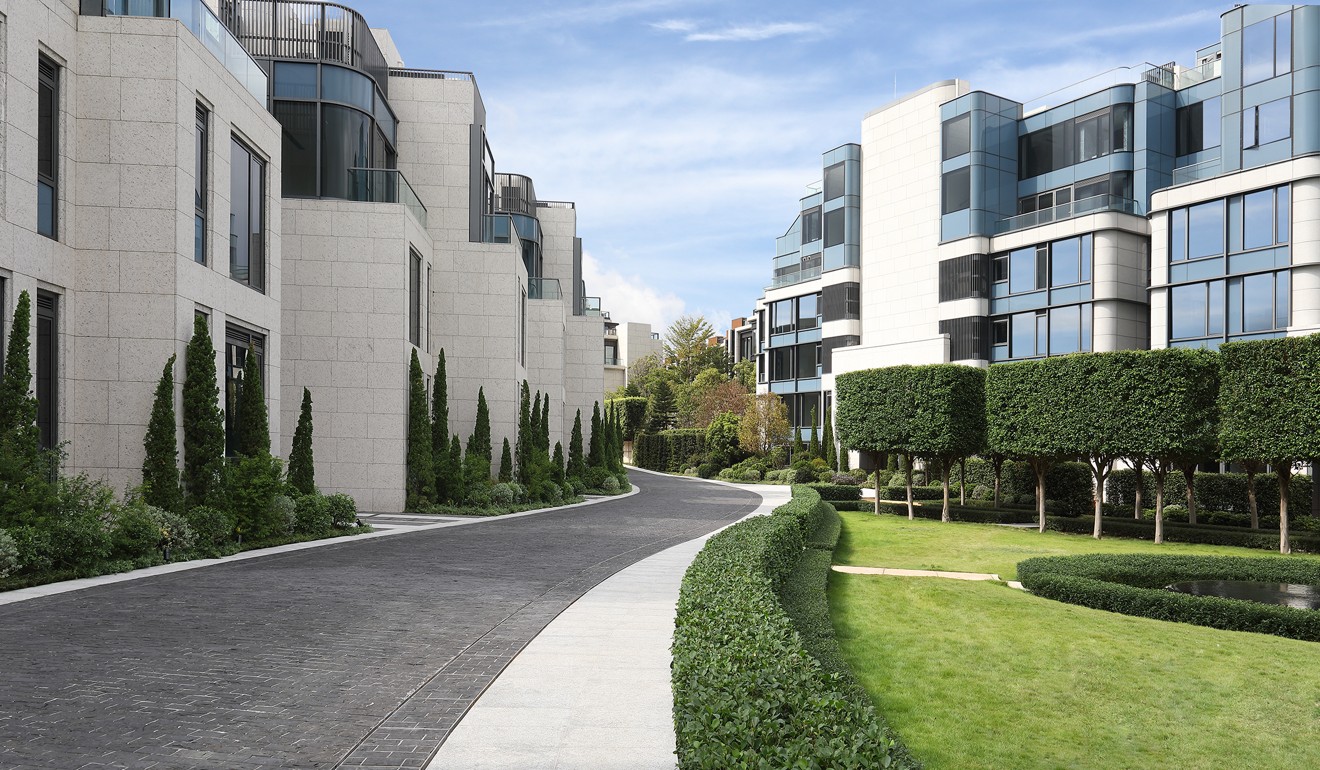
Mainland Chinese buyers’ interest in Hong Kong luxury homes wanes as trade war sours appetite
- Business owners from the Pearl River Delta, the major buyers of luxury property in Hong Kong, have been affected by the trade war
- Market observers say the temporary trade war truce will not have much of an impact on the city’s property market
Fewer deep-pocketed mainland Chinese buyers are showing an interest in Hong Kong’s luxury homes amid rising economic uncertainty brought by the US-China trade war, with market observers saying enquiries for property over HK$100 million (US$12.8 million) has fallen by half.
“Most of the buyers from the mainland are business owners whose businesses might be directly affected by the tariffs, while some are just holding off on their offers because of the uncertainties,” said Patrick Chau, senior director of residential development at Savills.
Businesses in the Pearl River Delta, one of the major manufacturing regions, have suffered because of the recent trade war. Punitive tariffs of 10 per cent slapped on US$200 billion of Chinese goods has made them uncompetitive.

Transactions in the luxury segment have been rather quiet, about 20 per cent fewer after the onset of the trade war
According to Goldman Sachs, China’s gross domestic product growth could slow to 6.2 per cent next year. Beijing has set a target of around 6.5 per cent for this year, which may be difficult to achieve because of headwinds from the trade dispute.
Although the US and China reached a temporary truce in their trade war over the weekend, analysts say a de-escalation of the dispute on the luxury market will not be seen overnight.
“Transactions in the luxury segment have been rather quiet, about 20 per cent fewer after the onset of the trade war,” said Thomas Lam, head of advisory and consulting at Knight Frank, adding that volumes may pick up, but not before the Lunar New Year.
George Sze, district director of Ricacorp Properties, also noted that there were definitely fewer mainland buyers. “However, even if 30 out of 100 potential mainland buyers withdraw their interest, there are still 70 rich ones considering buying those scarce luxury houses and the price level these buyers can accept is yet to be tested.”
Meanwhile, there have been few takers for villas. In October, only four such properties were sold – the lowest in the past 12 months, according to Centaline Property.
Amid such uncertainties, developers are cautiously treading into the market.

Chinachem Group is selling six units at its Villa Cove development in Clear Water Bay, a prime location known for attracting ultra rich buyers, through tender on Wednesday.
The project only has 10 villas, with sizes ranging from 3,265 sq ft to 3,987 sq ft.
The developer is targeting HK$60,000 per sq ft, which translates to villa prices of between HK$195.9 million and HK$239.2 million.
Connie Chan, assistant marketing manager at Chinachem is upbeat about the sales prospects, saying a downward housing market does not have much of an impact on luxury houses. “We hope to sell at least one before the Chinese Lunar New Year,” she said.
Wing Tai Properties is also actively pushing 68 houses at its La Vetta project in Kau To in the New Territories.
Meanwhile, some developers will be under pressure to sell their homes as these will be subject to the looming vacancy tax if it they are left empty for more than a year after receiving the occupation permit.
“Luxury houses in those most prestigious areas, such as The Peak, Clear Water Bay and Deep Water Bay, should be more resilient to the proposed tax as the supplies are quite small. Those in the New Territories will be more difficult to sell,” Sze said.

